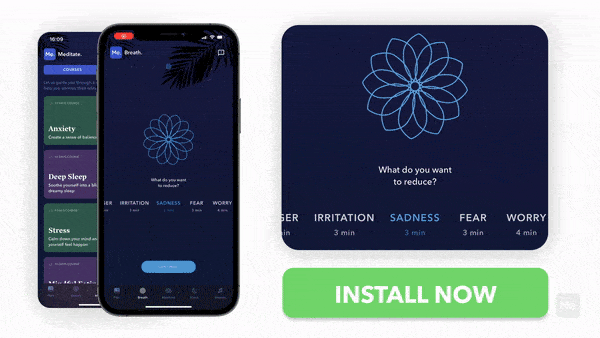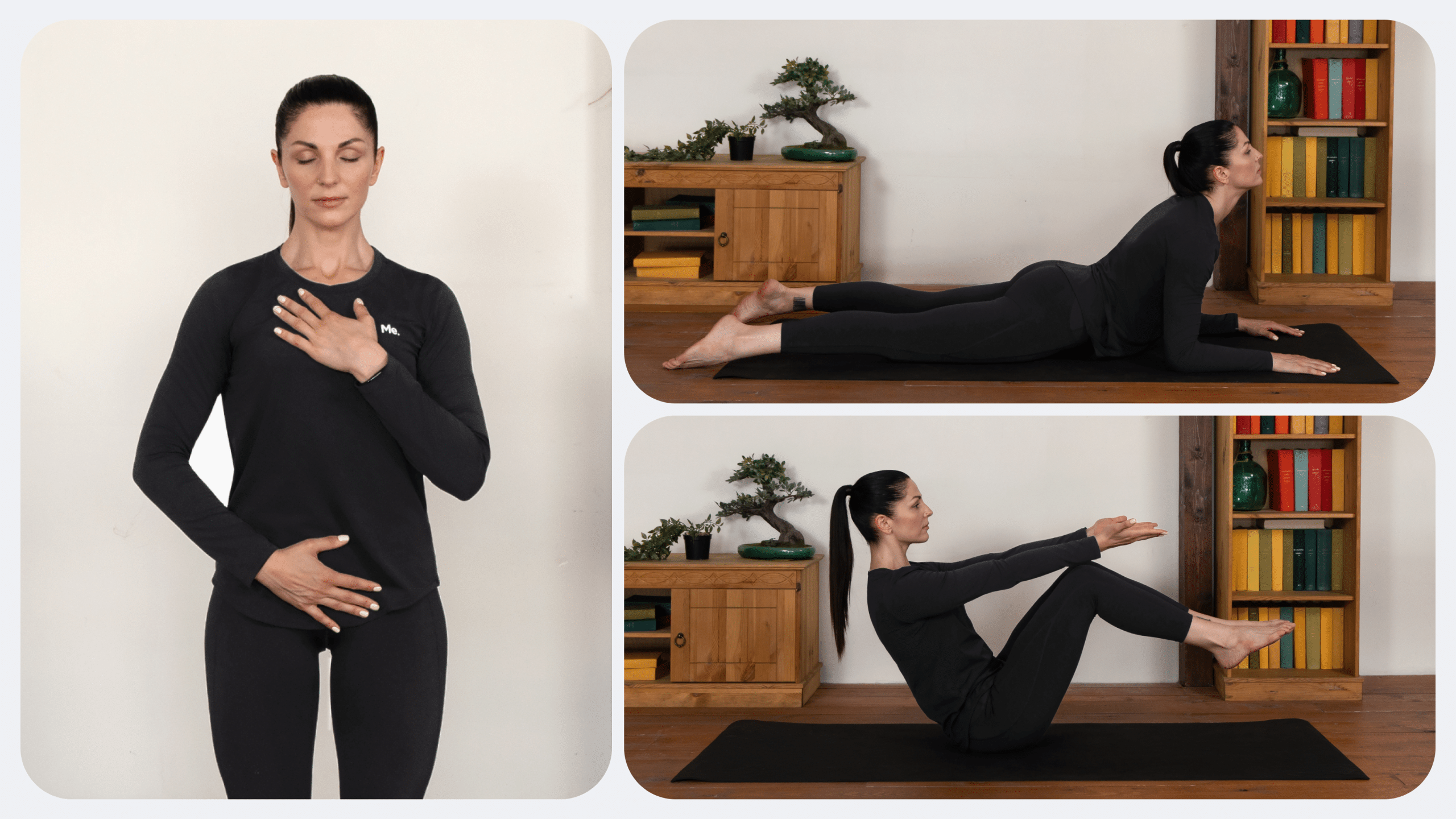Did you know that controlling how you breathe through the practice focused breathing could help improve concentration and center you during anxious situations? Unless you suffer from a condition that affects your lungs or brain, breathing is something that we all do subconsciously – whether awake or asleep, we don’t have to think about it as it just happens. While this is all well and good – after all, we need to breathe to live – there is so much more that we can do and achieve by learning how to control the way we breathe. One of the advantages being improved concentration and even reduced anxiety. In today’s article, we are going to introduce you to breathing for focus. This practice has been around for years and in today’s era of constant distraction and bad mental health days, this ancient practice could come in handy for many. If this sounds like something that you are interested in, stick around to learn how breathing can help you focus, some breathing techniques for focus, and much more.
What Is Breathing For Focus And Energy
Also known as breath focus, this is a deep breathing technique used by many to help them disengage from distracting sensations or thoughts and concentrate better. According to Harvard Heath, this deep breathing technique involves breathing deeply, with the air coming in through your nose fully filling your lungs, and causing the lower belly to rise.
While breathing for focus might seem like a new age practice, it is an age old practice that has been around for centuries. This practice is part of a larger umbrella of controlled breathing practices known as breathwork. For those who may not be aware of it, breathwork is the exercise of consciously controlling/manipulating your breathing for a period of time, for a desired outcome.
Breathwork is most commonly used in yoga and meditation but these things are not mutually exclusive, i.e. you can do breathwork outside of yoga and/or meditation. Manipulating breathing for different desired outcomes has been done in many cultures from the Chinese to the Egyptians and the Greeks (2). However, the most notable and well studied form of controlled breathing is Pranayama, from ancient Vedic texts of India.
Pranayama breathing techniques are what have been integrated into modern medicine and are what is in use today to help improve focus, relax muscles, reduce anxiety, increase or decrease energy levels, among many other functions (8).
Read More: Meditation State: Find Out How To Induce Deep Meditation
Can Breathing Help You Focus?
Yes, it can – a fact studied and ascertained by several academic studies.
- 2017 – In a study published in the Frontiers in Psychology journal researchers found that diaphragmatic breathing (aka deep breathing) had profound effects on concentration (6).
In the study, researchers took 40 participants and divided them into two groups – a breathing intervention group (BIG) and a control group (CG). Over a period of 8 weeks, the people in the breathing intervention group had 20 breathwork sessions where they practiced slow breathing to an average of 4 breaths per minute. They also wore a real-time feedback device that reported how this practice affected their bodies.
After the 8-week study period, researchers using the collected data found that the people in the BIG group
- Showed a significant decrease in negative affect after intervention – Negative affect refers to negative emotions and expression, such as sadness, disgust, lethargy, fear, and distress
- Had better attention spans
- Had a significantly lower cortisol level after training – This hormone has multiple functions with the most commonly known being relieving stress.
- 2018 – A year later, a review published in the Frontiers in Human Neuroscience journal found that voluntary slowing down of breath frequency had positive effects on both the autonomic and central nervous systems activities as well as the psychological status.
On the psychological front, researchers saw positive changes such as increased comfort, relaxation, pleasantness, vigor and alertness, and reduced symptoms of arousal, anxiety, depression, anger, and confusion (3).
- 2018 – In late 2018, researchers from the Trinity College Institute of Neuroscience and the Global Brain Health Institute published a study in the journal Psychophysiology stating that when we practice deep breathing, our bodies release the chemical noradrenaline, which improves focus and helps keep the brain “youthful” through the growth of new connections between cells.
Noradrenaline, produced in the locus coeruleus part of the brain, is usually when we feel stressed, curious, focused, emotionally aroused, or when we exercise. On one hand, when we have too little noradrenaline, we feel sluggish and less motivated. On the other hand, however, too much of this hormone leads to too much brain activity which in turn reduces focus.
According to the study researchers, when you do breathing exercises for focus using deep breathing activity, the activity of the locus coeruleus goes up as you breathe in and down as you breathe out. Not only does this allow your body to regulate the amount of noradrenaline in the brain, but the act of deep breathing switches your attention from any distraction around you – or even the negative emotions you might be experiencing (1).
Researchers found that people with better breath work had better attention spans when dealing with a task than those who didn’t.
An important fact to note is that improving concentration is not the only benefit of breathing exercises for focus, more research has shown that this practice can help alleviate stress, anxiety, depression, and improve sleep, conscientiousness, mindfulness, self esteem, social connectedness, and overall life satisfaction (4, 5).
Looking for a way to break the vicious cycle of weight loss and tone up all the jiggly parts? Watch the extra pounds fly off and your muscles firm up with the BetterMe app!
Breathing Techniques For Focus
Here are two deep breathing techniques that will help reduce anxiety and improve your concentration
Option 1
- Sit on a comfortable surface with your back straight – posture is very important
- Slowly inhale through your mouth for four counts/seconds
- Purse your lips slightly and gently breath out through your mouth. Imagine pushing the breath out through a straw attached to your lips
- As you slowly breathe out, relax all your muscles and imagine a wave of relaxation flowing through your body, from the top of your head to the soles of your feet.
- Repeat this entire process about five times. If you have the time, repeat this process for five to ten minutes
Option 2
- Sit or lie down in a comfortable position
- Take a normal breath, let it out and then take one deep breath. Note the difference in how these two breaths feel. The deep breath should make your belly expand
- Now that you can recognize the difference, take a normal breath and slowly let it out through your mouth or nose – whichever feels the most natural/comfortable to you.
- Now take a deep breath filling your lungs and expanding your belly fully. Hold this breath and slowly let it out through your mouth/nose
- Alternate between the normal and deep breaths for up to 5 minutes
Either breathing option – when done correctly is bound to induce relaxation and concentrating on how your body goes through the breaths will switch your thoughts from any dark or anxious matters making you feel much calmer and able to concentrate on the task in front of you.
Read More: Meditation For Insomnia: Best Techniques To Ensure A Good Night’s Sleep
FAQs
What Is Concentration Breathing?
This is a breathwork technique that uses deep breathing to improve alertness and concentration.
What Is The 4-7-8 Breath Method?
The 4-7-8 breathing technique is one of the many relaxation breath methods that exist today. Like many breathwork techniques, the 4-7-8 method has its roots in the ancient yogic practice of breath regulation, pranayama. Despite existing for many years, it only gained popularity in 2015, courtesy of the American celebrity doctor Dr. Andrew Weil.
This breathing technique is said to help bring the body back into balance, regulating the fight-or-flight response that we all get when we are stressed. This puts the body in a deep state of relaxation which not only gets rid of anxiety, but also helps us sleep better at night. In fact, proponents of this technique say that it is best used by people who find it hard to sleep at night due to swirling thoughts, concerns, and anxieties.
Here’s how to do it (7):
- Start by getting into a comfortable position. If sitting down, ensure that you sit in the correct posture with your back straight. Lie down if you are attempting to use this breath method for sleep
- Rest the tip of your tongue against the roof of your mouth, right behind the two front teeth. Your tongue needs to remain here throughout this exercise. If you are a beginner, don’t get too frustrated if the tongue moves. Keeping it here takes practice. To help keep the tongue in this position, remember that you have to exhale through your mouth around your tongue.
- With the tongue in the above position, fully exhale through the mouth making a ‘whoosh’ sound
- Close your mouth and quietly inhale through your mouth as you count to 4.
- Hold this breath for 7 counts
- Making another ‘whoosh’ sound, exhale this breath as you count to 8.
- This counts as one cycle breath. Do this for a total of 4 cycle breaths
Please note that this is not a breathing exercise for focus. The 4-7-8 method is specifically a deep relaxation and sleep technique.
If you tend to let yourself off the hook, raise the white flag when things get tougher than you expected, send yourself on an unconscious binge-eating trip – BetterMe app is here to help you leave all of these sabotaging habits in the past!
The Bottom Line
Using breathing for focus techniques is a quick and cheap way to redirect your thoughts whenever you feel overwhelmed or your mind keeps wandering away from the most important and pressing tasks. It is also an effective way to induce sleep, for mindfulness and to improve the general mental health of many.
DISCLAIMER:
This article is intended for general informational purposes only and does not serve to address individual circumstances. It is not a substitute for professional advice or help and should not be relied on for making any kind of decision-making. Any action taken as a direct or indirect result of the information in this article is entirely at your own risk and is your sole responsibility.
BetterMe, its content staff, and its medical advisors accept no responsibility for inaccuracies, errors, misstatements, inconsistencies, or omissions and specifically disclaim any liability, loss or risk, personal, professional or otherwise, which may be incurred as a consequence, directly or indirectly, of the use and/or application of any content.
You should always seek the advice of your physician or other qualified health provider with any questions you may have regarding a medical condition or your specific situation. Never disregard professional medical advice or delay seeking it because of BetterMe content. If you suspect or think you may have a medical emergency, call your doctor.
SOURCES:
- Coupling of Respiration and Attention via the Locus Coeruleus: Effects of Meditation and Pranayama (2018, researchgate.net)
- Historical perspectives on the control of breathing (2012, pubmed.ncbi.nlm.nih.gov)
- How Breath-Control Can Change Your Life: A Systematic Review on Psycho-Physiological Correlates of Slow Breathing (2018, ncbi.nlm.nih.gov)
- Improvements in well-being and cardiac metrics of stress following a yogic breathing workshop: Randomized controlled trial with active comparison (2020, tandfonline.com)
- Promoting Mental Health and Psychological Thriving in University Students: A Randomized Controlled Trial of Three Well-Being Interventions (2020, frontiersin.org)
- The Effect of Diaphragmatic Breathing on Attention, Negative Affect and Stress in Healthy Adults (2017, ncbi.nlm.nih.gov)
- Video: Breathing Exercises: 4-7-8 Breath (n.d., drweil.com)
- What is Breathwork and Why is Everyone Obsessed With It? (2019, medium.com)












